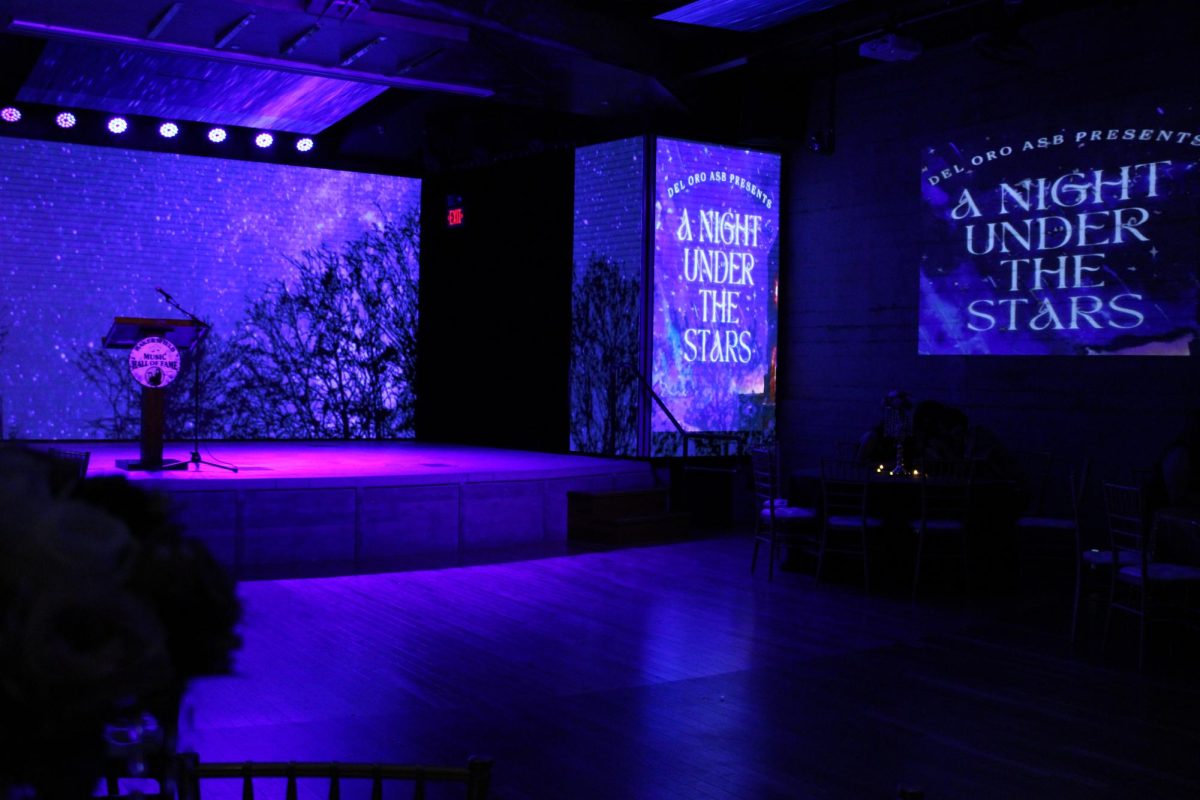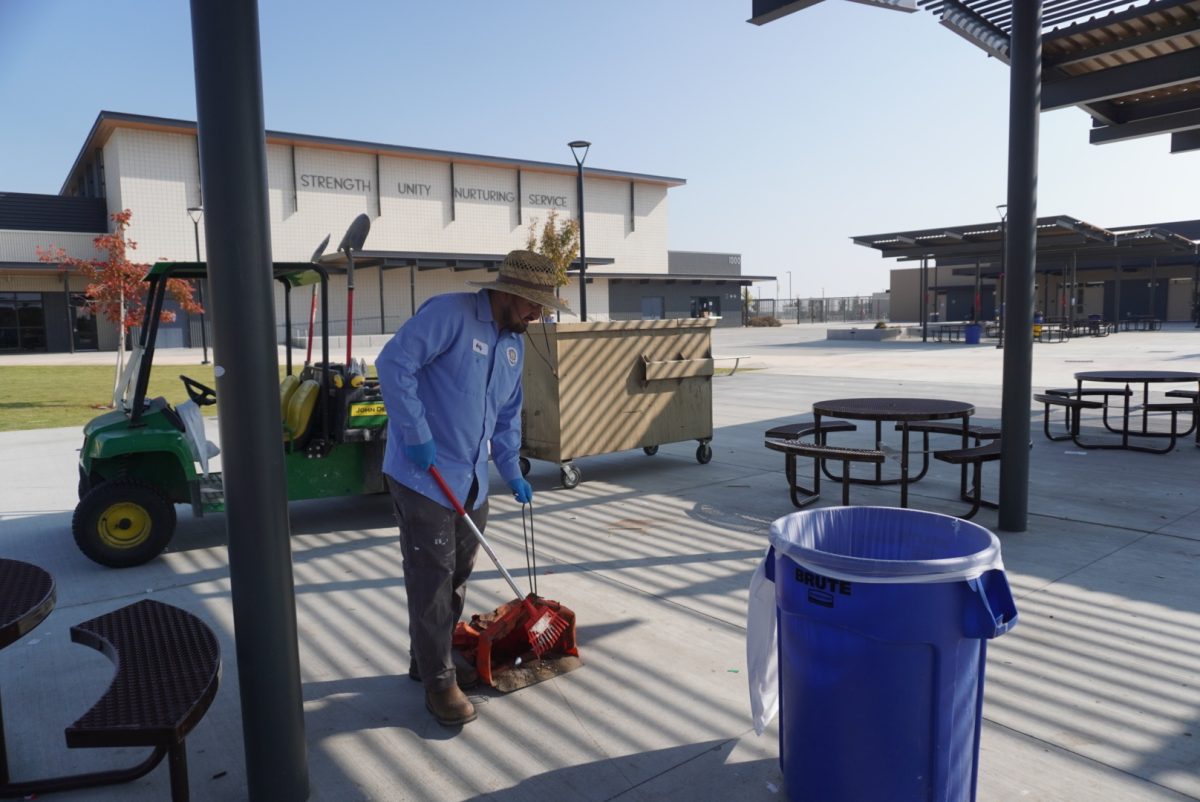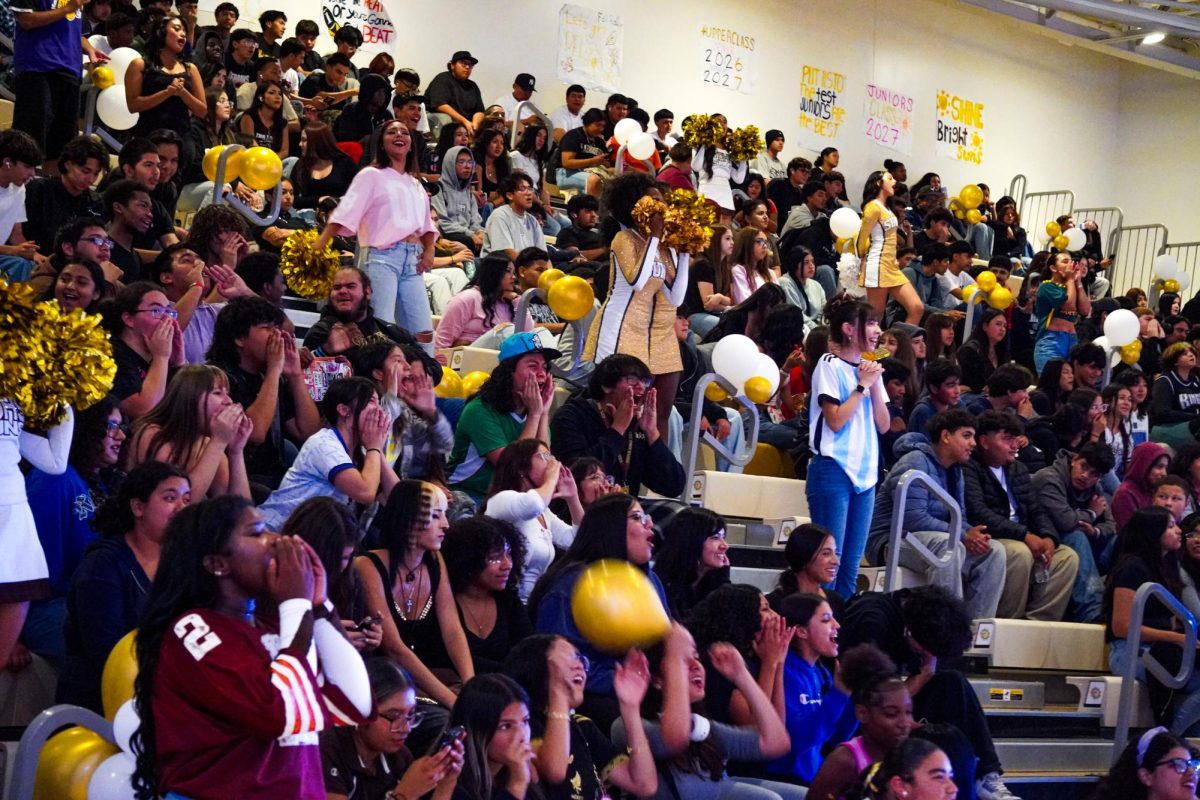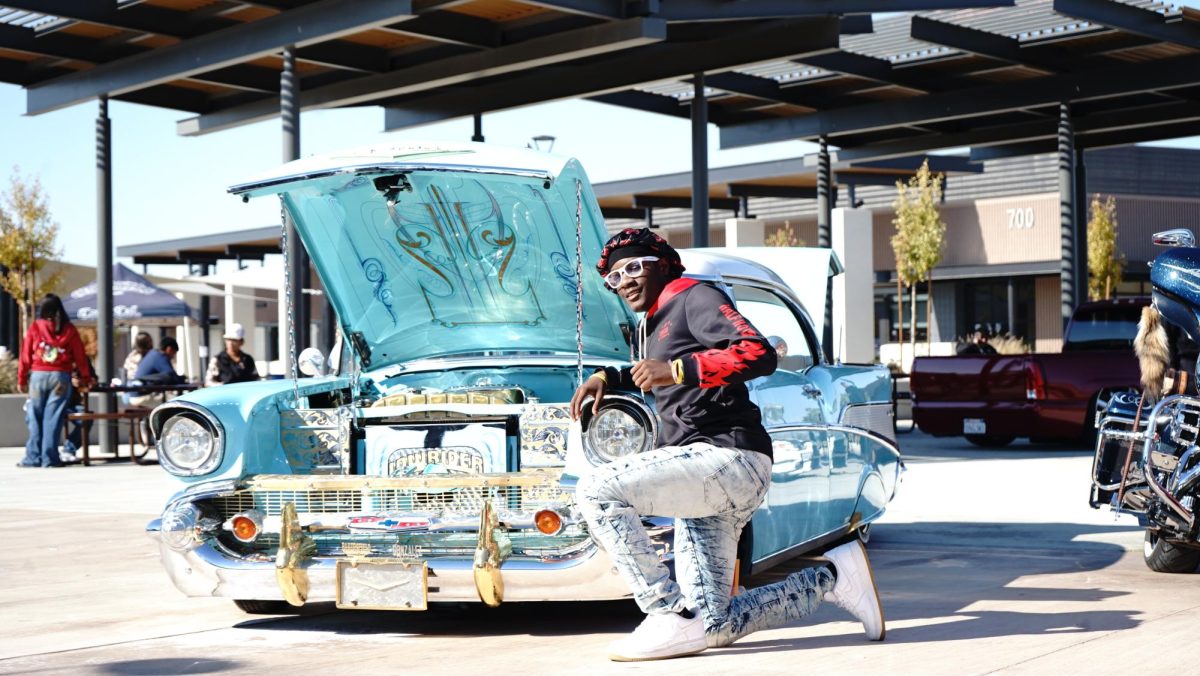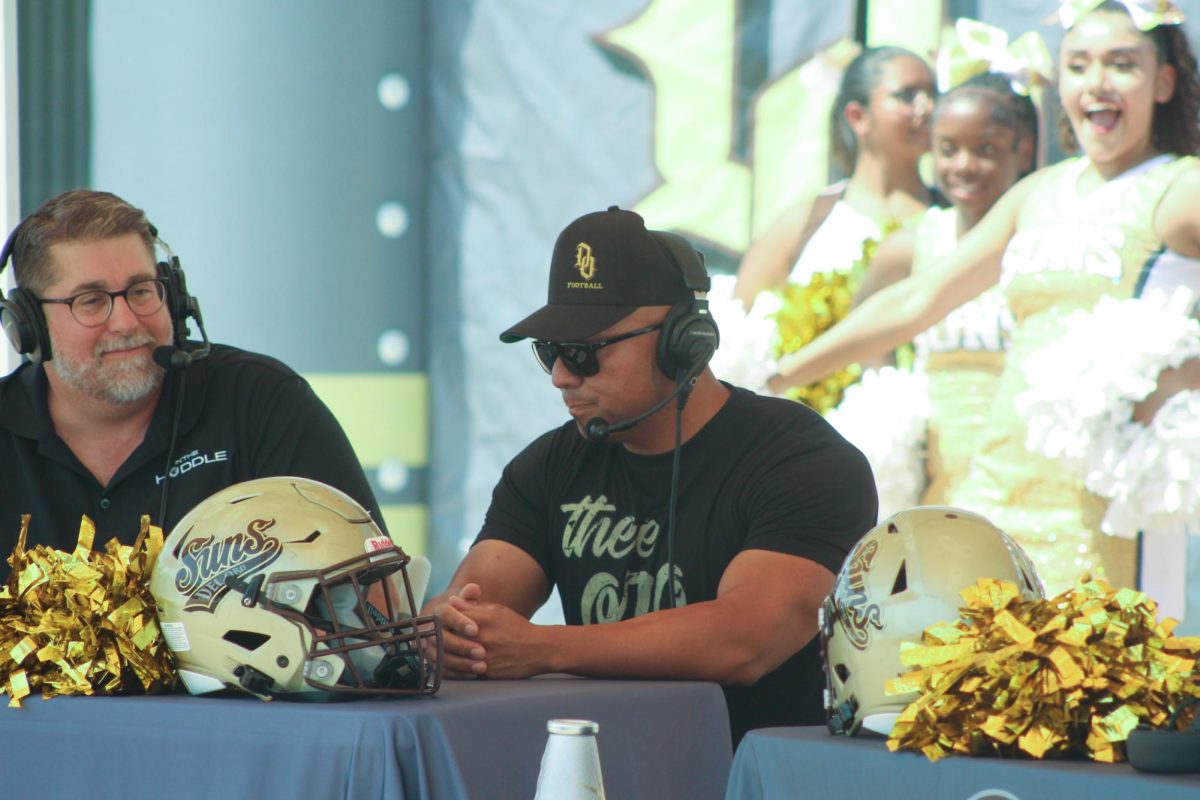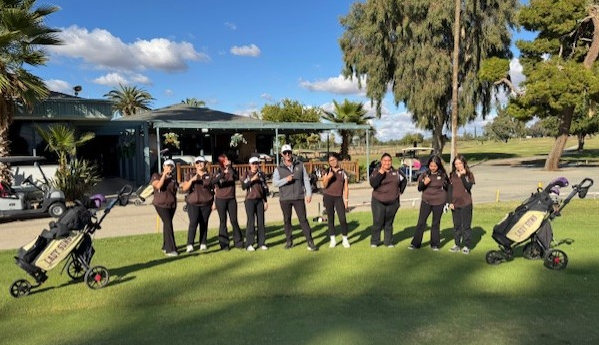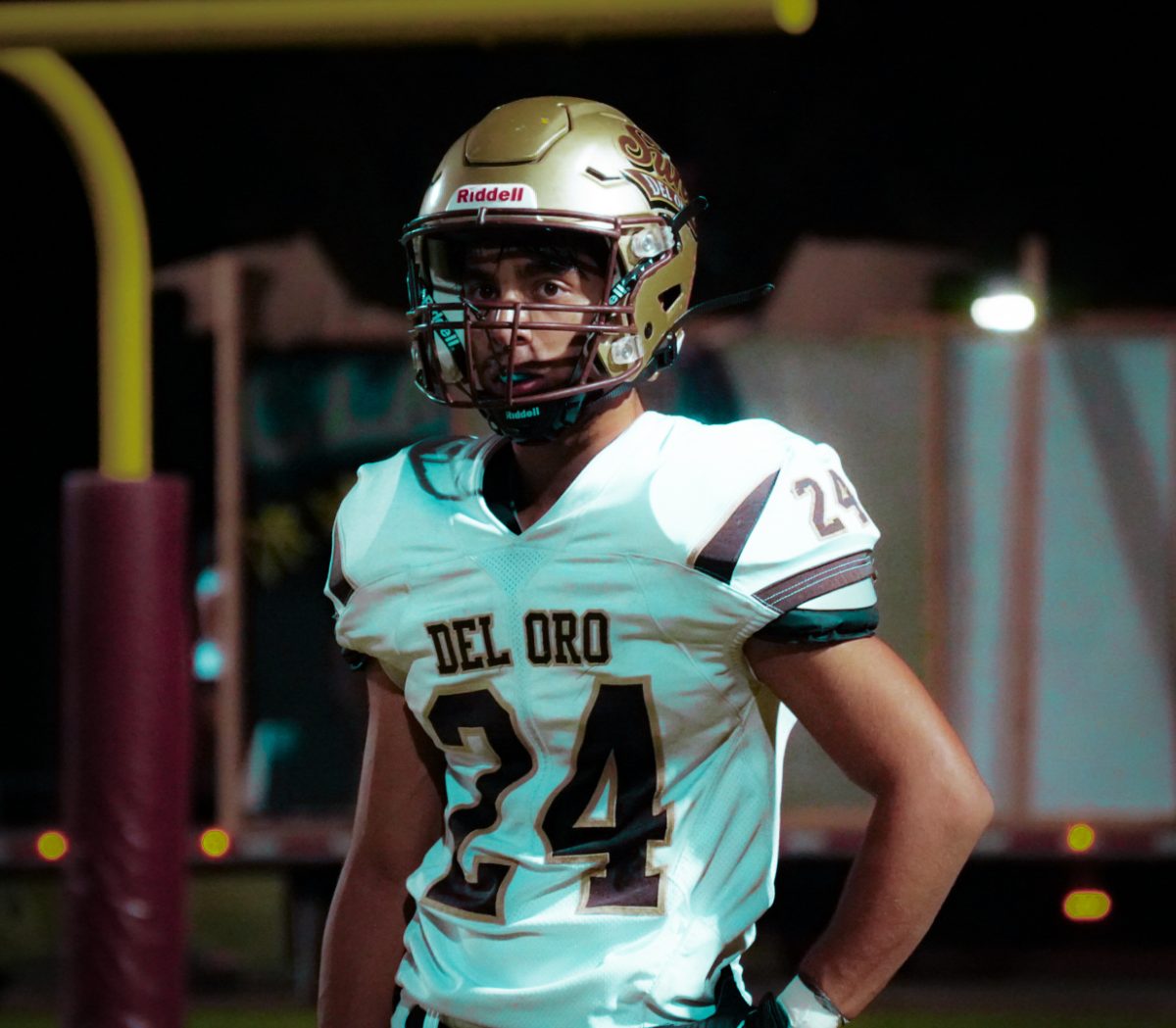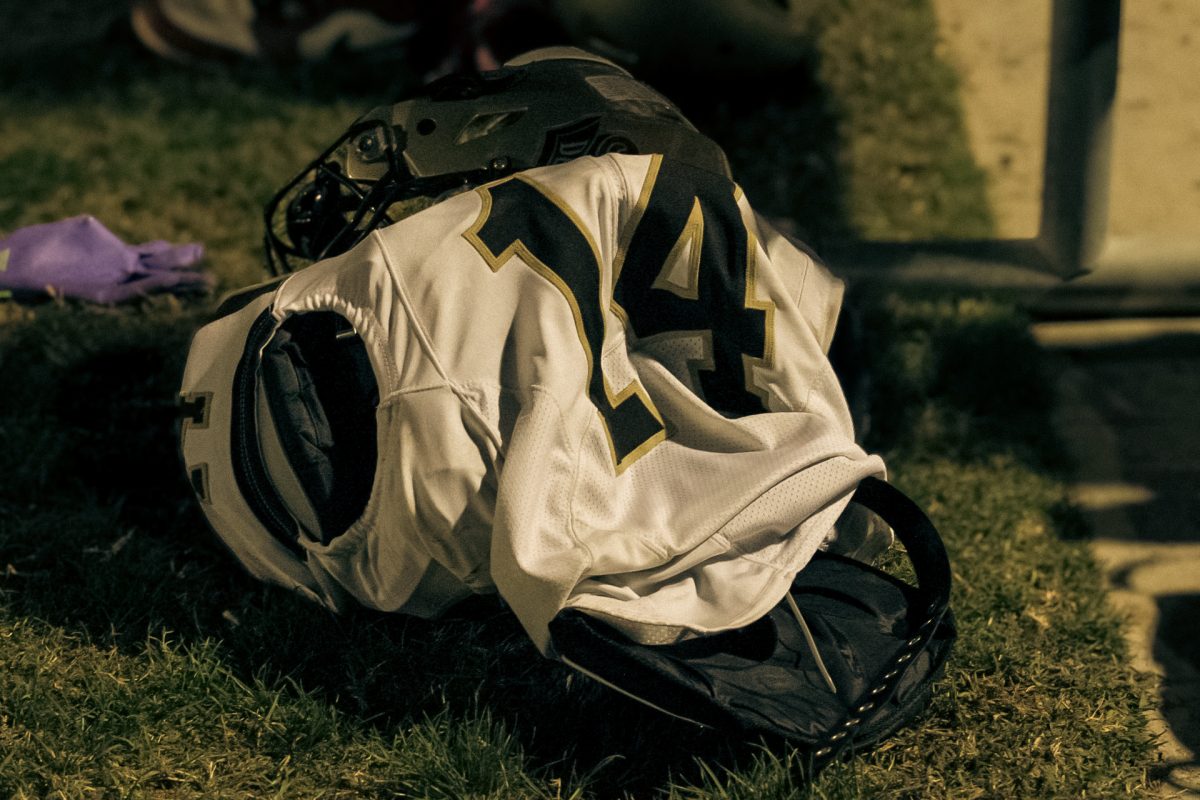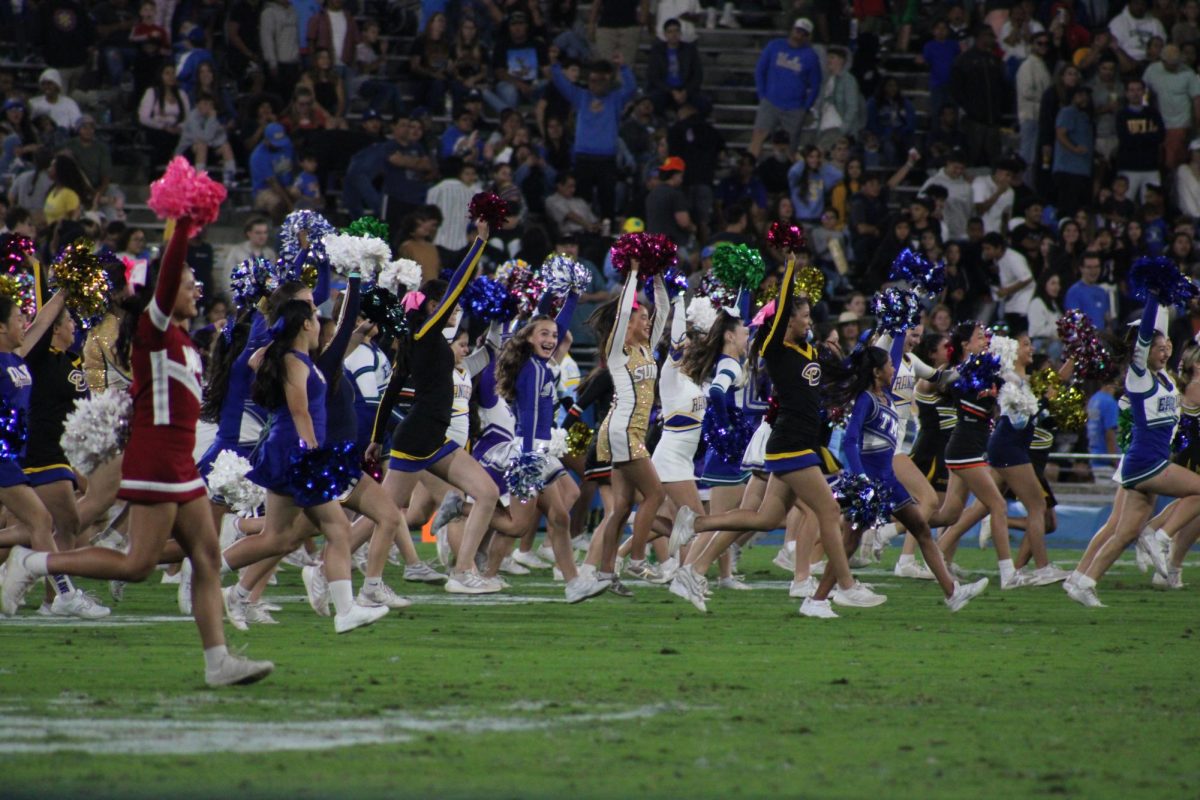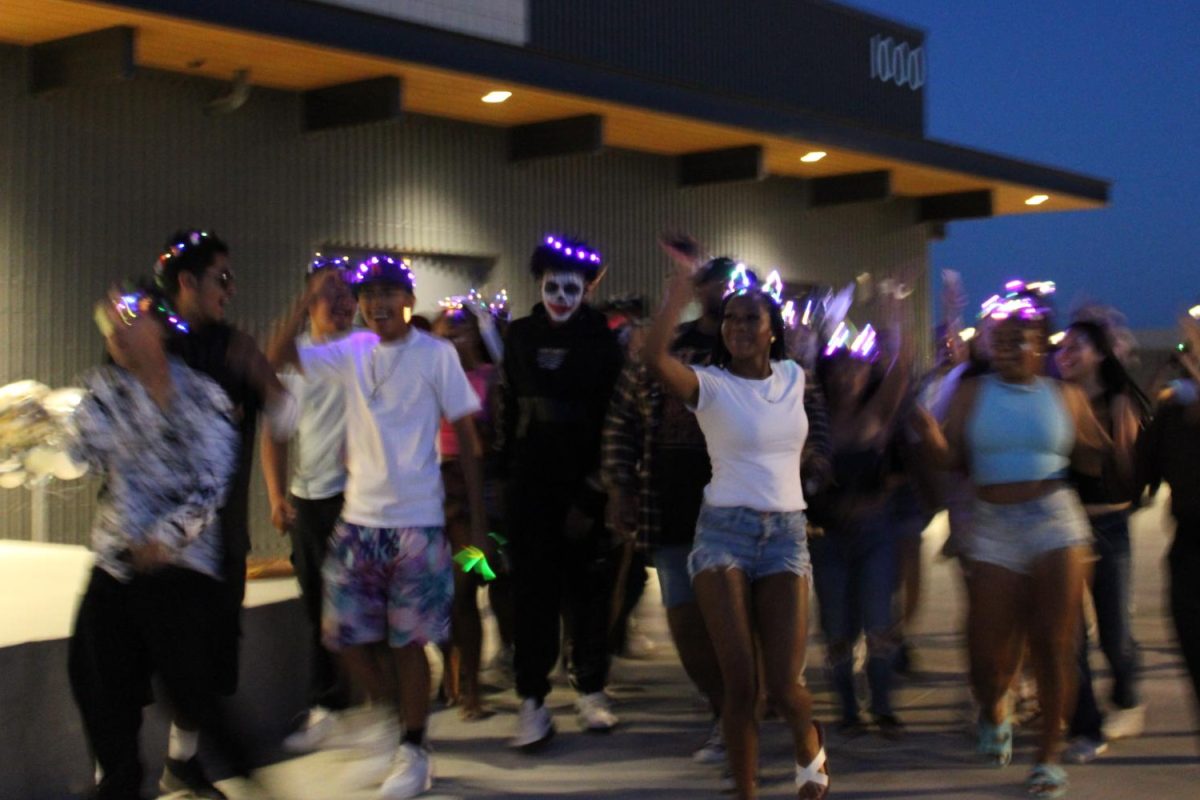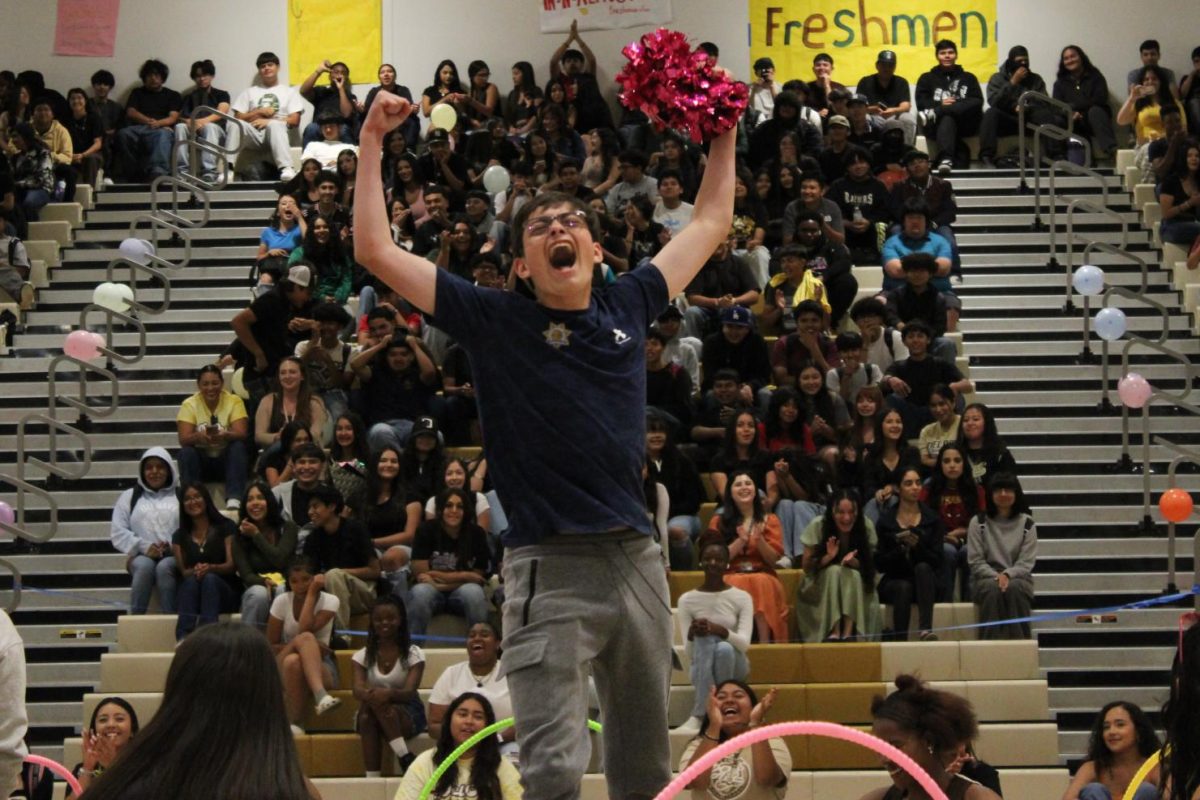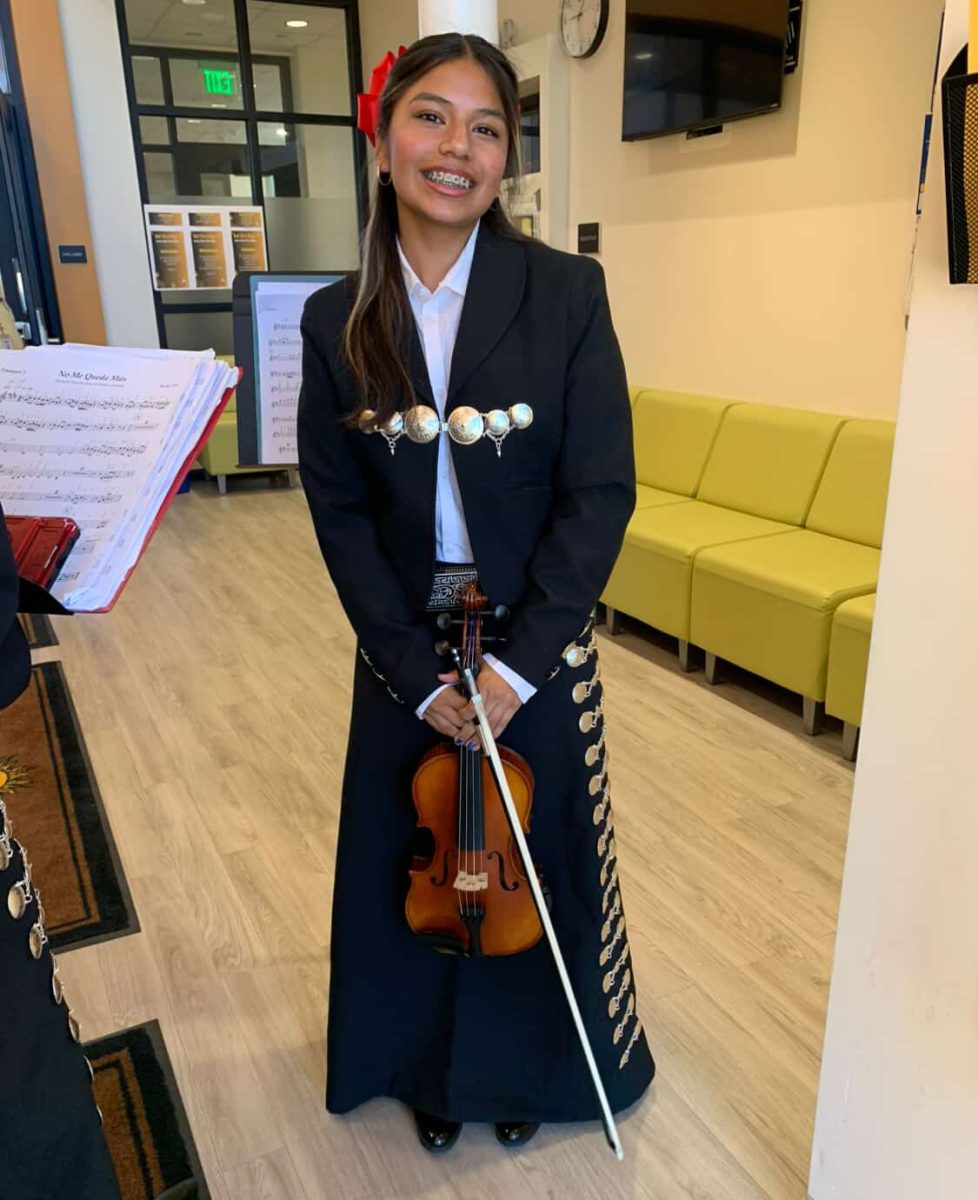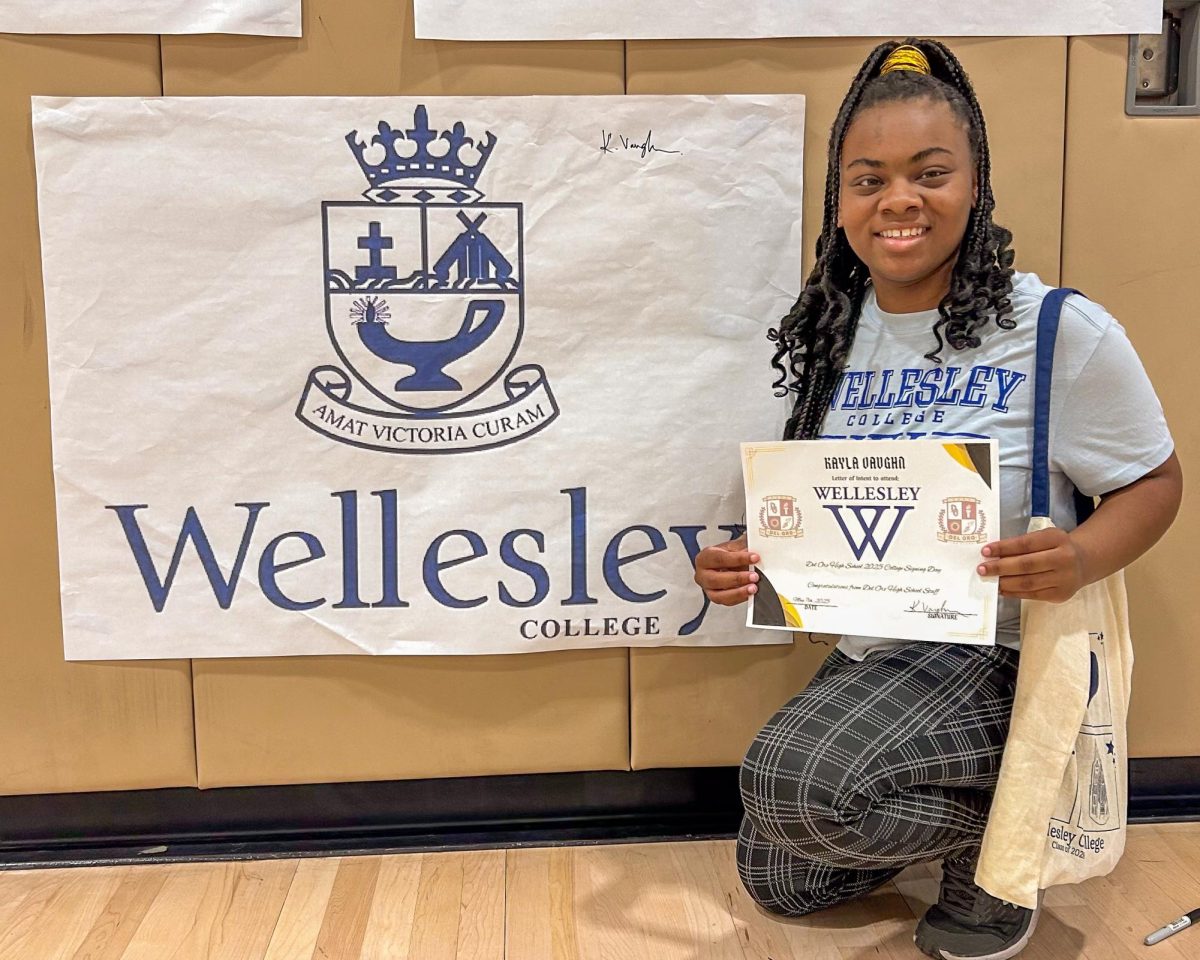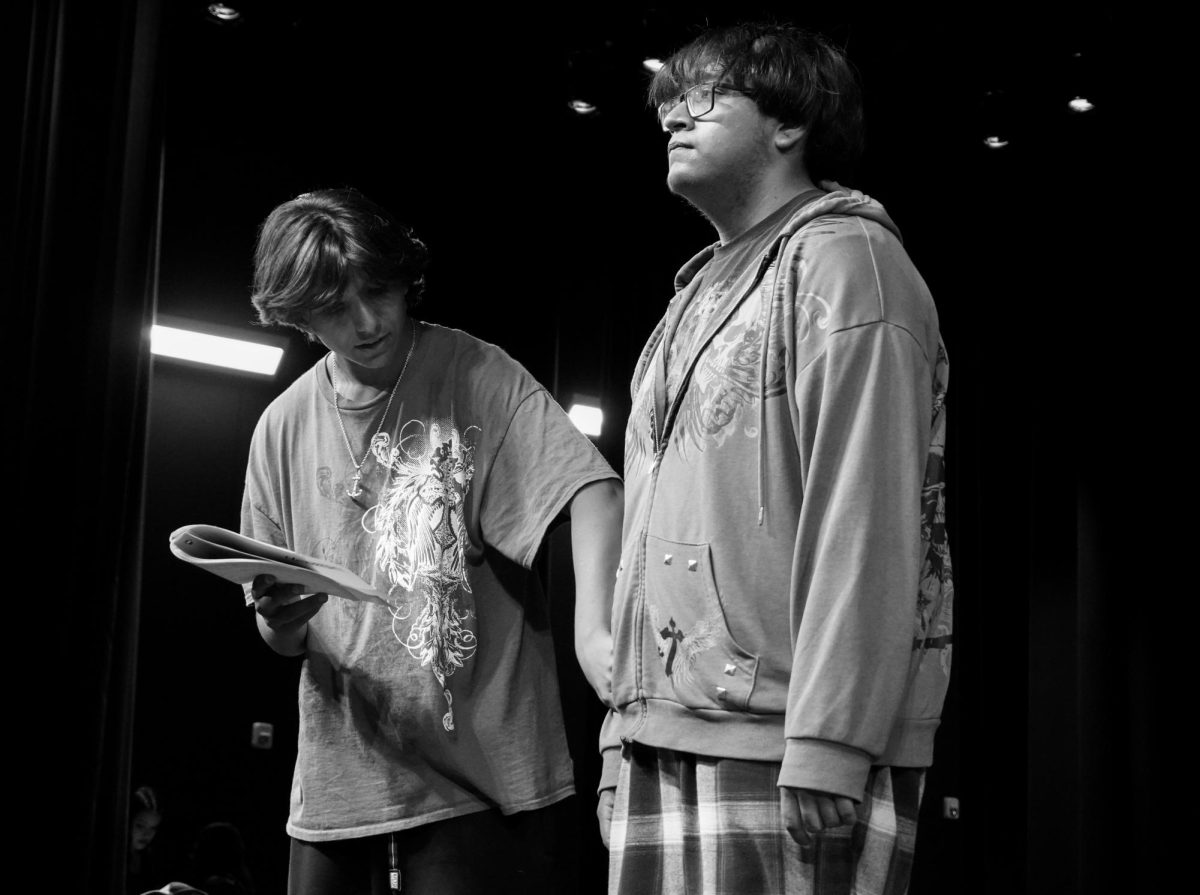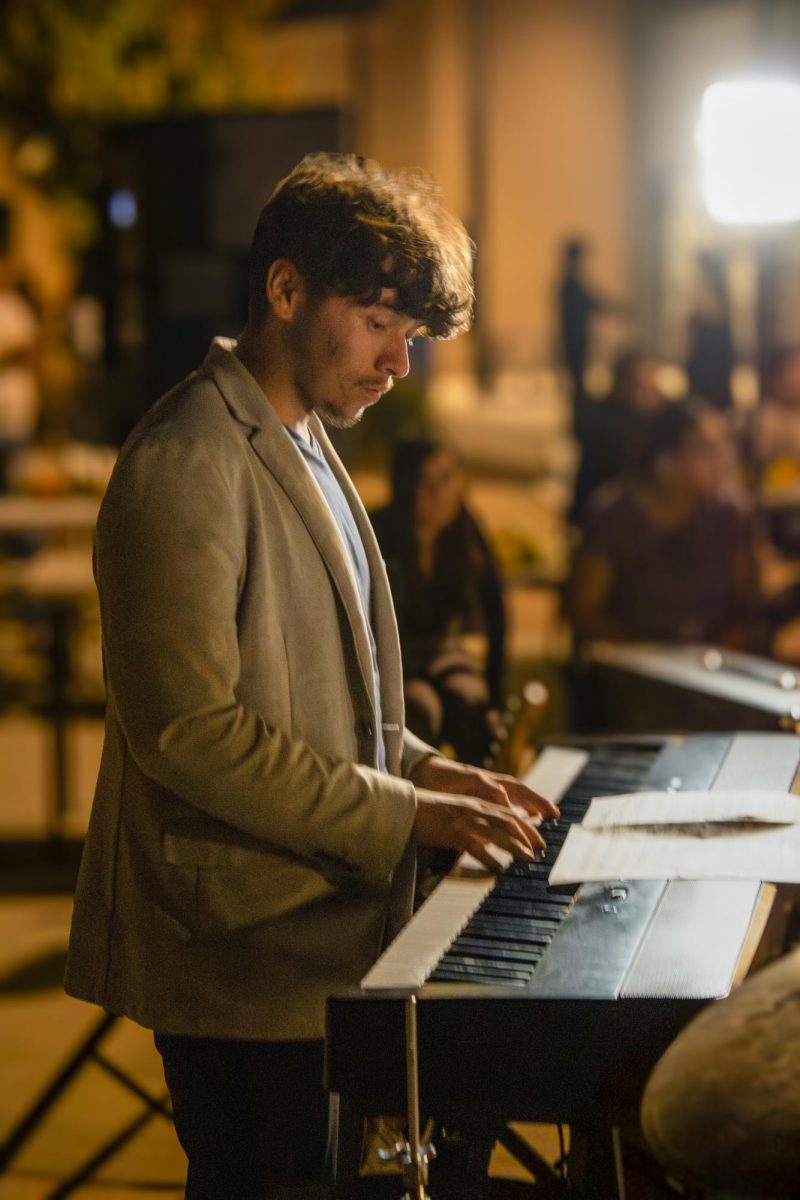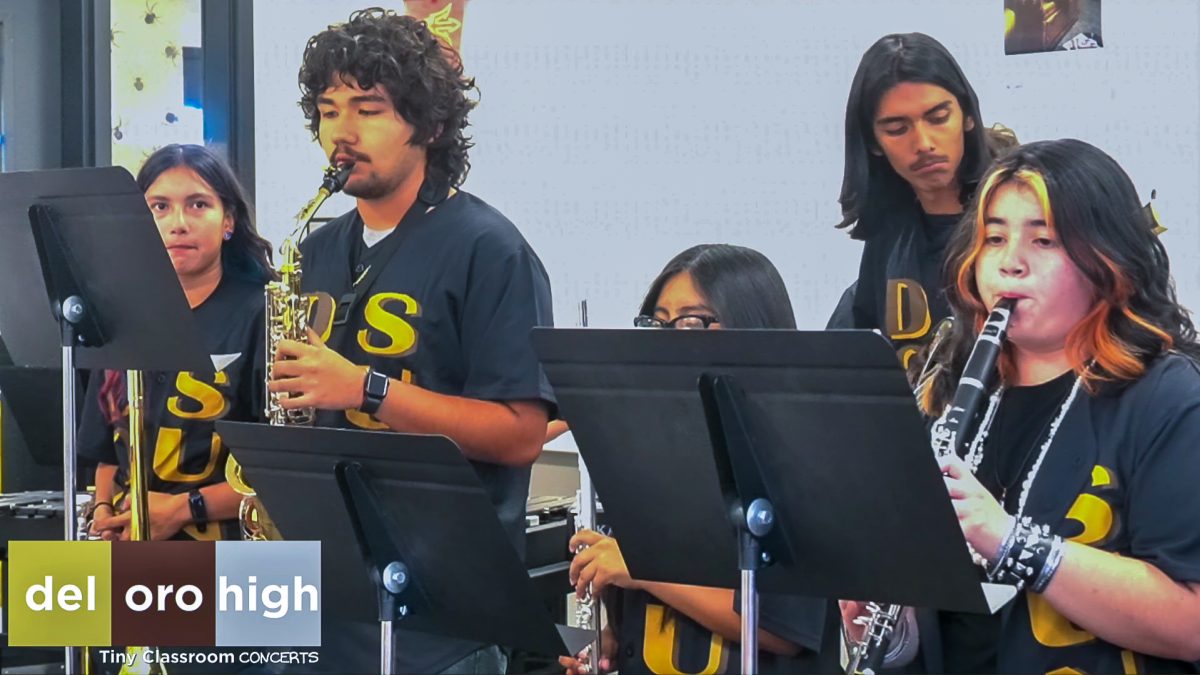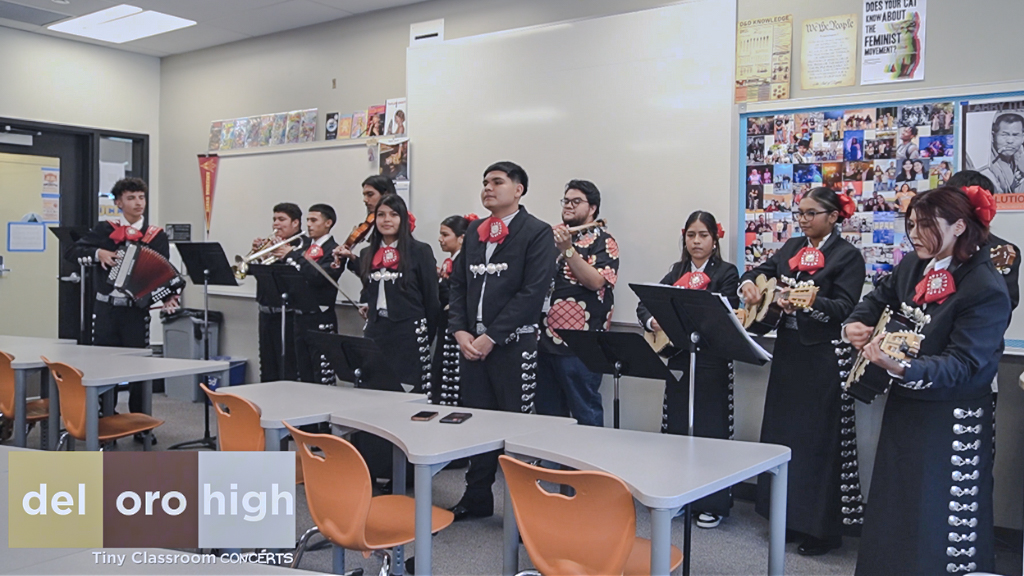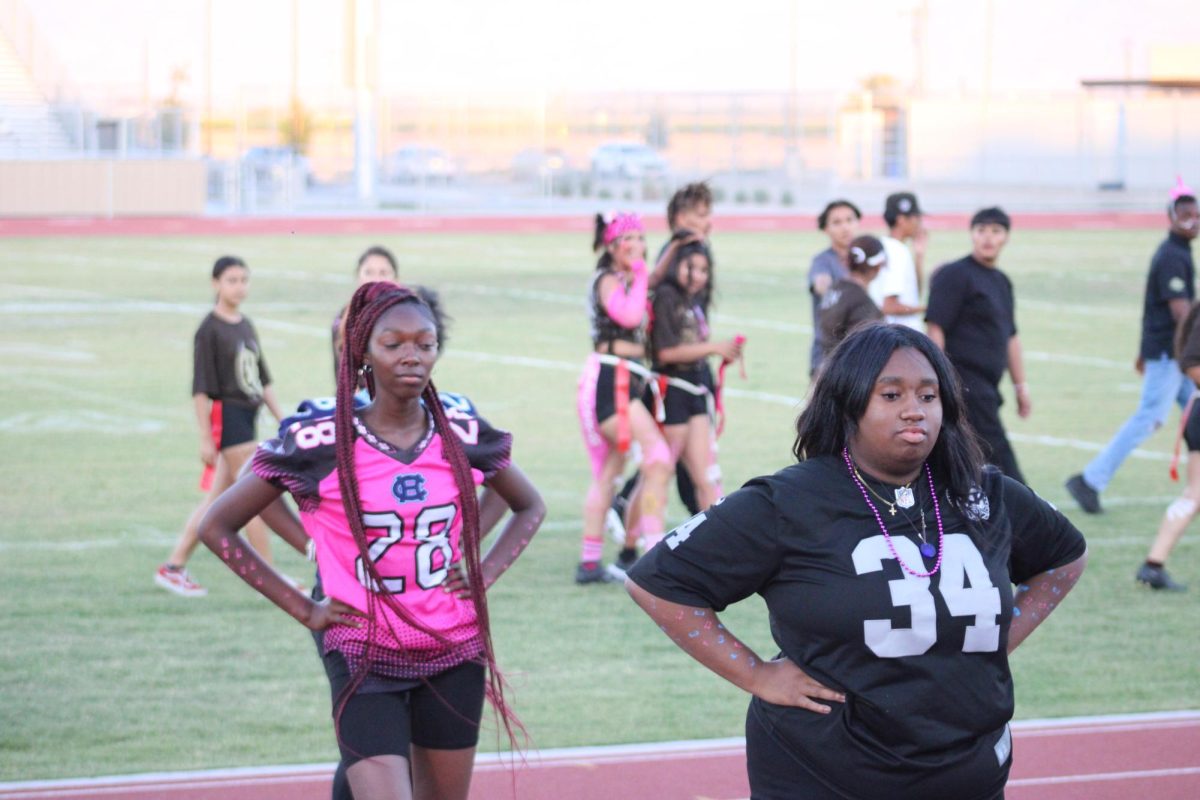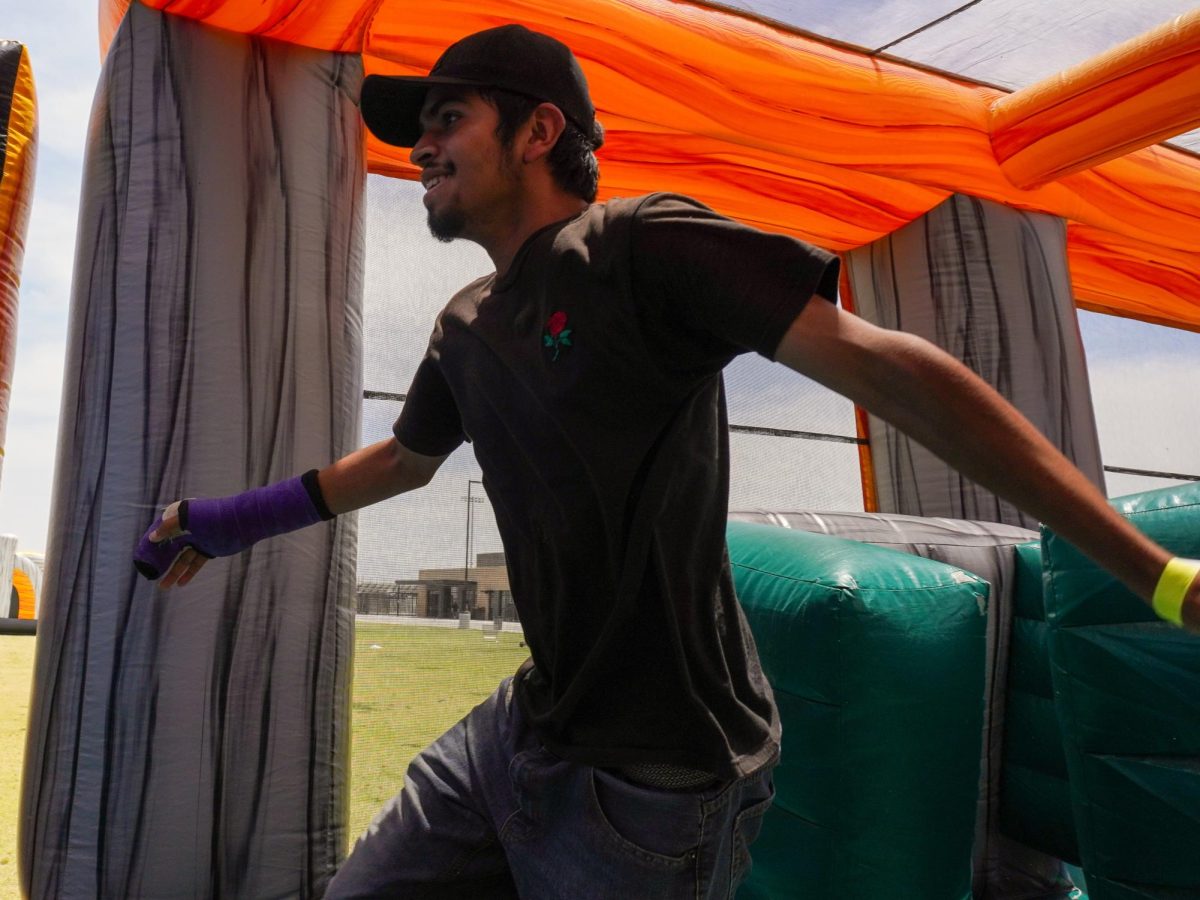Friday’s Homecoming football game against Mira Monte featured less dancing than what some students had originally planned for at the start of the season.
Del Oro’s Sunett’z, the first and only majorette dance group in the Kern High School District, disbanded after the first game of the season over what some members said was a lack of support from their advisor and school administration. The Sunett’z performed during last Spring’s year-end rally and at halftime during the powder puff game. Their final performance came during halftime of the Suns’ football game against Cesar Chavez High on Aug. 22. Since then, they’ve been missing from the sidelines at home football games.
“Our journey was great until it wasn’t,” said Sunett’z member Arianna Madison, a junior. “I think the Sunnet’z should have continued and gotten the support we needed.”
Prior to disbanding, the group had held practices in the 600 building’s collaboration room and was trying to raise money for uniforms. English department co-chair Shelby Brown, advisor for the Sunett’z, said Librarian Isaac Richert helped the club write a grant proposal for the uniforms.
“I think that (the Sunett’z) ended due to many reasons, but mostly just a lack of organization on everyone’s part,” Brown said.
Madison said the incident that sparked the Sunett’z’s breakup occurred prior to halftime of the Cesar Chavez game. She said a parent of one of the majorettes got into an argument with the Sunett’z coach and founder, Jalynn Hammond.
“A parent disrespected (Hammond) and was cussing her out,” Madison said.
Hammond said some of the majorettes became upset during the argument, which escalated the situation. She also said poor communication throughout the year between the club, its advisor, and school officials contributed to the decision to disband the Sunett’z.
“No one was communicating or helping solve problems, besides Arianna and (me),” said Hammond, who stepped down as ASB president after the incident.
Hammond said she didn’t feel the majorettes received the same level of support as that of other sports on campus.
“People don’t always appreciate what’s new,” she said. “The majorettes may have started as a club, but more resources should have been given and also support.”
Chris Dutton, Del Oro’s assistant principal of instruction, said school officials helped the Sunett’z as much as possible but there were limits to what support could be provided since the group was designated as a club on campus.
“In fact, the principal secured several thousand dollars for uniforms for the program,” Dutton said. “We gave [the Sunett’z] our blessing to form and we had found funding for it. I don’t know how we could have done any more.”
Brown said she believed she did her best to balance being the club’s advisor and its voice of reason – with the latter being a role she said was forgotten at times by members of the Sunett’z.
“I wish that things had ended differently,” Brown said. “For me, right now it’s hard because I feel like I lost that connection with students who I really appreciate and love and who are amazing. I still think they’re amazing.”
However, Hammond said she doesn’t look back negatively on the experience.
“I loved every moment of bonding with the Sunett’z,” she said. “But I also wanted to be respected more from not only the girls we brought on but also (from) advisors and administrators.”
Majorette Marcella Valdez, a freshman, said the group’s breakup was unfortunate since the Sunett’z had learned new dance routines and added new members.
“I do miss us coming together, sharing our opinions and bringing new things to Del Oro,” she said.
Brown also said she enjoyed working with the group.
“I loved working with the girls and I loved the relationships that I built with them,” she said.
Majorette dance originated with German carnival dancers, but it has become a significant part of Black culture – particularly at historically Black colleges and universities in the U.S. like Alcorn State.
“Not everybody understands the importance of how badly Black and brown girls needed majorette, not only as a club but as a mentorship,” Hammond said. “We planned college trips and so much more to expose these girls to things that they’d never seen before.”
Dutton said it is possible for the club to re-form.
“Once things get straightened out, then hopefully it can continue,” he said.

